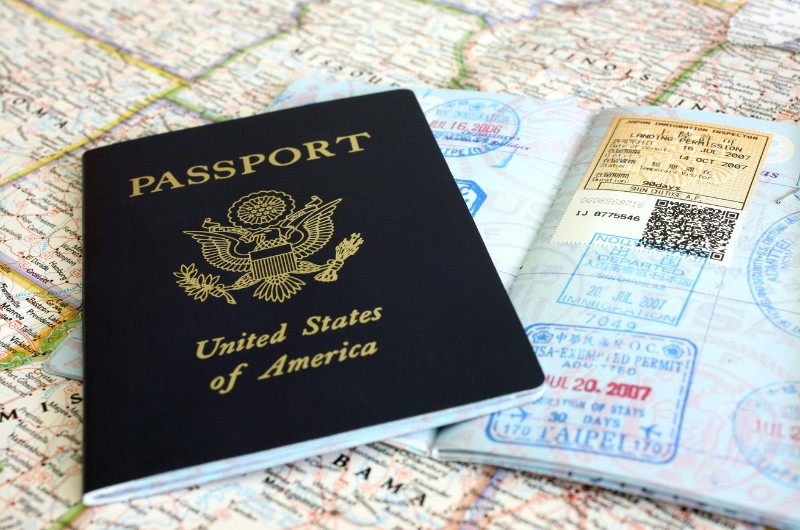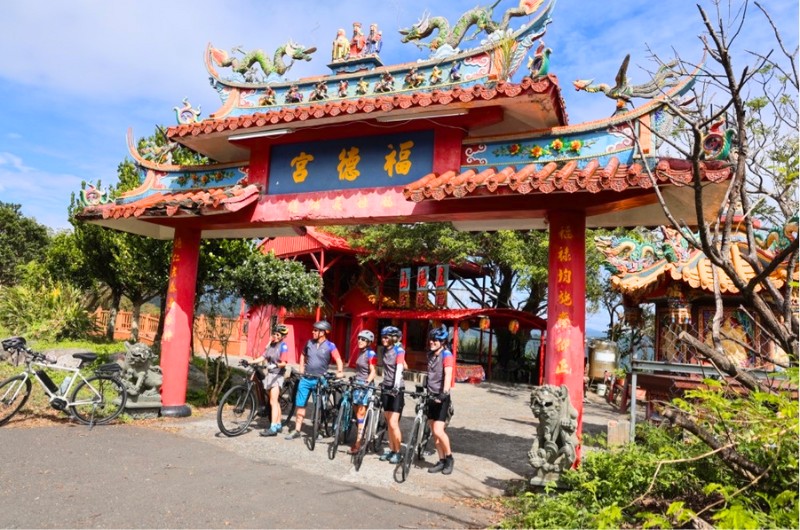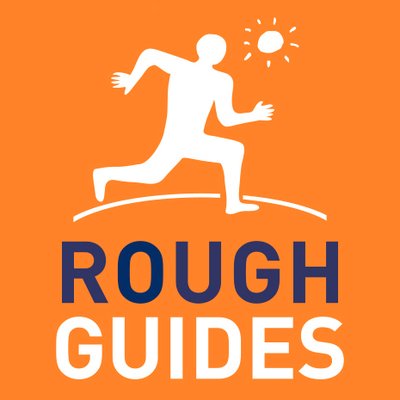Packing your bags for an enchanting Taiwanese vacation can be a whirlwind mix of eagerness and wonder. The questions practically write themselves as your plans take form.
What are the requirements for going to Taiwan? Which is the best month to visit Taiwan? Is Taiwan safe to travel to? What's the food like? And the omnipresent concern—will navigating around in English feel like an uphill climb?
This Taiwan Travel Guide is poised to serve as your trusty lantern, brightening the sometimes-foggy path of pre-trip planning before you greet Taiwan, an island that's as warm with its welcome as its steaming baskets of xiaolongbao.
Taiwan Entry Requirements
Planning a trip to Taiwan is an exciting venture, and to ensure your journey is as smooth as a sip of their iconic bubble milk tea, let's dive into the essential details of entry requirements.
First things first, you'll need a valid passport. Your passport should have at least six months of remaining validity at the time you enter Taiwan. Depending on your nationality and the duration of your stay, you may also need a visa.
Good news for citizens of many countries, including the US, Canada, Australia, and most European nations, is that they can enjoy a visa-free stay in Taiwan for up to 90 days. If you're from Japan or South Korea, you can stay for up to 180 days without a visa. Just make sure you have a return or onward ticket, as immigration officers may ask for proof of this.
For other nationalities and stays longer than the visa-free period, you'll need to apply for a visa before arriving in Taiwan. In most cases, you can apply online or through a Taiwanese consulate or embassy in your home country.
Lastly, while not an entry requirement per se, it's always advisable to have travel insurance when visiting any foreign country. This way, you'll be covered for any unexpected medical expenses or other emergencies while exploring Taiwan.
Please keep in mind that the rules and regulations might change from time to time, so always check for updates before planning your trip.
What’s the weather like in Taiwan?
With mild subtropical vibes in the north, high altitude forests in the middle, and tropical beaches in the south, Taiwan offers weather that’s as varied as its landscapes. So, when's the best time to visit? Well, that depends on what you're looking for.
The summers in Taiwan are long and start from around April/May until September/October.
Come winter, the north cools down, with even a bit of snow gracing the majestic Yushan Mountain—Eastern Asia's highest peak at 3,997 m.
Heading south, though, the script flips. Here, travelers can revel in pleasant temperatures, rarely dipping below 15°C/60°F, even in winter. Southern Taiwan is where you swap your hot cocoa for a refreshing tropical drink, enjoying outdoorsy fun year-round.
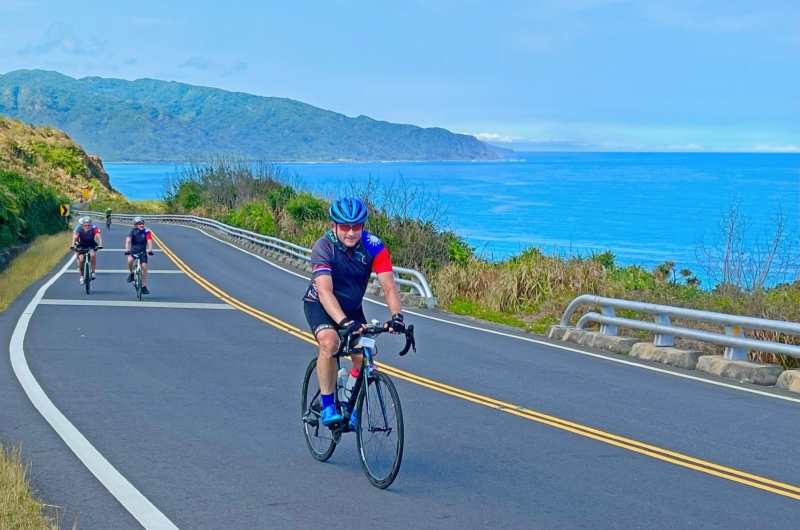
When the rest of us are pulling out our winter coats, Kenting in southern Taiwan is basking in sunny days, with the thermometer taunting the high 20s °C (mid 80s °F).
And while a rainy season does exist, swooping in from May to August, it tends to shy away from the south, making it the land of endless summer.
So, in Taiwan, all you really need to pack is a sense of adventure, because no matter when you arrive, this island is ready to show you a good time.
When is the Best Time to Visit Taiwan?
Our favorite mantra? "There's no such thing as a bad time to visit Taiwan." But if you're looking for the Goldilocks seasons (not too hot, not too cold, but just right), Spring (March-May) and Autumn (October-December) top our list. Keep in mind that traveling in the shoulder seasons either side of these can mean less crowds at popular sites and be more cost-effective.

Is Taiwan a safe country to visit?
Absolutely! Taiwan is an incredibly safe country to visit where attention to safety extends across all aspects, notably for cyclists.
The government has done an outstanding job at creating an infrastructure that is cyclist-friendly. Bike lanes are well-maintained and clearly marked, making Taiwan a haven for cyclists. Traffic regulations are not only clear but also strictly enforced to ensure everyone's safety on the road.
The bonus? Taiwan's road signs are bilingual, providing guidance in both Chinese and English. This feature makes it easier for foreign riders to understand their route and navigate Taiwan's breathtaking landscapes safely and confidently.
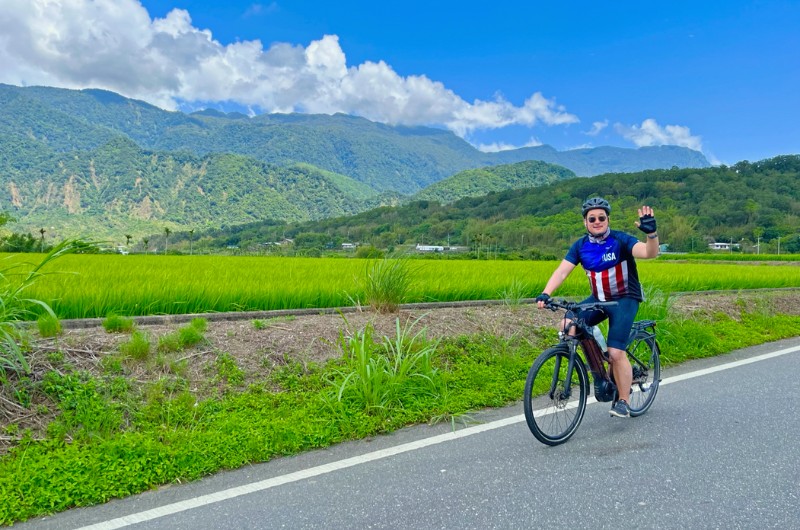
But Taiwan's commitment to safety doesn't stop at the road. You'll find a palpable sense of order everywhere you go, from its bustling cities to its bucolic countryside. The friendly locals are eager to help, offering guidance or simply sharing a warm smile that makes you feel right at home.
Taiwan showcases not just an adventurous spirit, but also a peace of mind that is genuinely reassuring for travelers.
Roam with added peace of mind on our Bike, Walk & Dumplings tour of Taiwan. Achievable riding distances, a variety of activities, and a good balance of downtime, make this tour perfect for everyone.
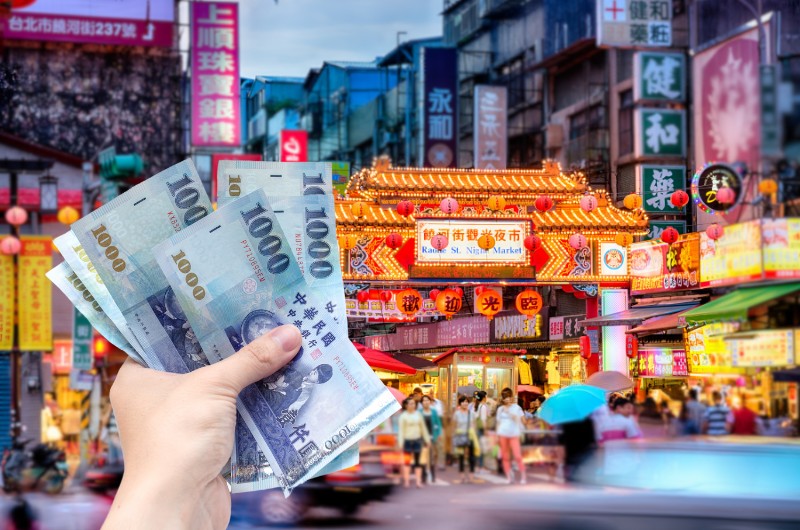
Money and currency in Taiwan
When visiting any new country, understanding the local currency, its cash and card culture, can make your stay much smoother. Here's what you need to know about managing money in Taiwan:
Official Currency of Taiwan
The official currency of Taiwan is the New Taiwan Dollar, often abbreviated as NT$, TWD or just $ when pricing is displayed locally. It's divided into 100 cents, though one cent coins are rarely used or seen. Banknote denominations come in $100, $500, $1000, and $2000, while coins come in $1, $5, $10, $20, and $50.
ATM’s in Taiwan
You will find plenty of ATMs in Taiwan, especially in urban areas. They are usually located within banks, convenience stores like Family Mart and 7-Eleven, and some MRT (Metro) stations. Most ATMs work with international bank cards; look for machines that display the PLUS, Cirrus or Maestro logos if your card is associated with these networks.
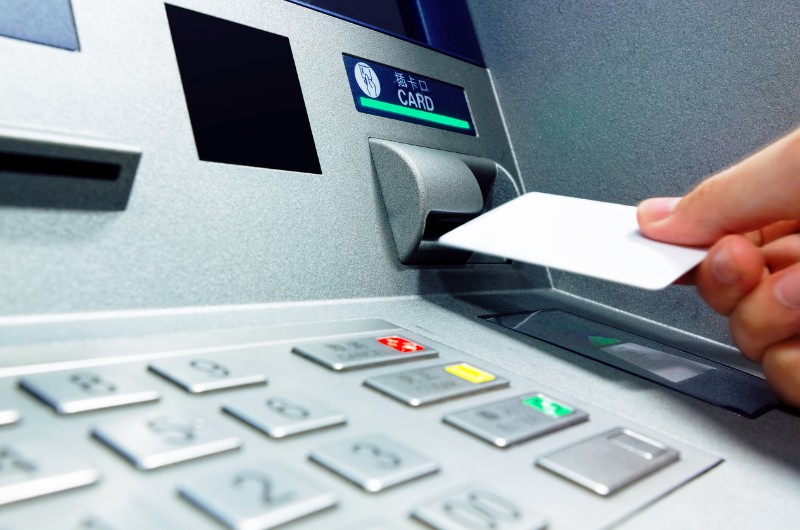
Do note that foreign cards generally can only withdraw from ATMs that have an English language option, and some of these don't provide 24-hour service. Also, there is usually a withdrawal limit per transaction, typically $20,000 TWD, or about $630 to 640 USD at the time of writing.
Using Credit Cards in Taiwan
Credit cards are widely accepted in Taiwan, especially Visa and MasterCard. From shopping malls and larger hotels to upscale restaurants, you won't have any trouble using your card. However, while the trend is shifting, smaller businesses, like smaller eateries, markets, and street vendors, might only accept cash.
If you're planning on exploring more local and offbeat spots, it's a good idea to keep some cash handy.
Cash in Taiwan
While Taiwan is progressively moving towards digital payments, cash is still king, particularly in areas outside the main cities. Even in urban areas, you'll want cash for places like night markets, smaller shops, or when taking taxis (some can take card payments, but best not to rely on it).
Tips for First-Timers
- Inform your bank: Before heading to Taiwan, inform your bank about your international travel plans to avoid the potential blocking of your card due to foreign transactions.
- See the exchange rates: Familiarize yourself with the latest exchange rates to avoid confusion during initial transactions.
- Exchange some cash beforehand: Although ATMs are generally easily accessible, it's a good idea to have some local currency handy on arrival for small purchases or emergencies.
- Small change for small vendors: Try to keep smaller notes and coins on hand for street vendors and taxis who might not have much change.

Should you tip in Taiwan?
Traditionally, tipping isn't the norm in Taiwan. This is because service charges are usually incorporated into the final bill in most establishments including restaurants, hotels and bars.
While tipping is not a widespread practice in Taiwan, it is not considered disrespectful or insulting. If you feel the service provided was exceptional, a small tip is a thoughtful way to express your appreciation.
Note: If you choose to embark on one of our Grasshopper Adventure tours in Taiwan, you'll be delighted to know that tips for dining and service personnel are included. We've got you covered, so you can focus on savoring the local cuisine and soaking in the culture, not calculating your tip.
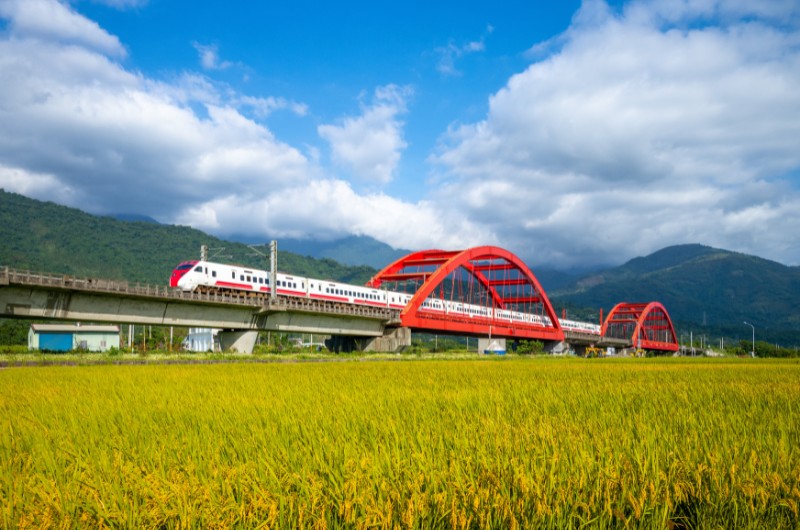
How to Get Around in Taiwan?
Taiwan offers a variety of transportation options that cater to different preferences, budgets, and travel styles. Here's an overview of the main modes of transportation:
Buses: Bus services in Taiwan are inexpensive and well-organized, making them a great way to get around both in cities and for intercity travel. Taipei and Kaohsiung have extensive local bus networks with English signage and announcements. Intercity buses cover practically the whole island and offer express routes that make traveling between major cities fast and convenient.
Trains: Taiwan's railway system consists of ordinary trains and the High-Speed Rail (HSR). Ordinary trains service smaller towns and rural areas and are a scenic way to traverse the island. Taiwan's HSR is an efficient and popular mode of transport connecting major cities along the west coast. It offers comfort and speed with journey times significantly shorter than other forms of transportation.
Taxis: Widely available in Taiwanese cities and can be hailed from the street or found at designated taxi stands. Metered taxis are affordable and convenient, but drivers may not always speak English, so it's best to have your destination written in Chinese or you can look it up on your smartphone to show your driver.
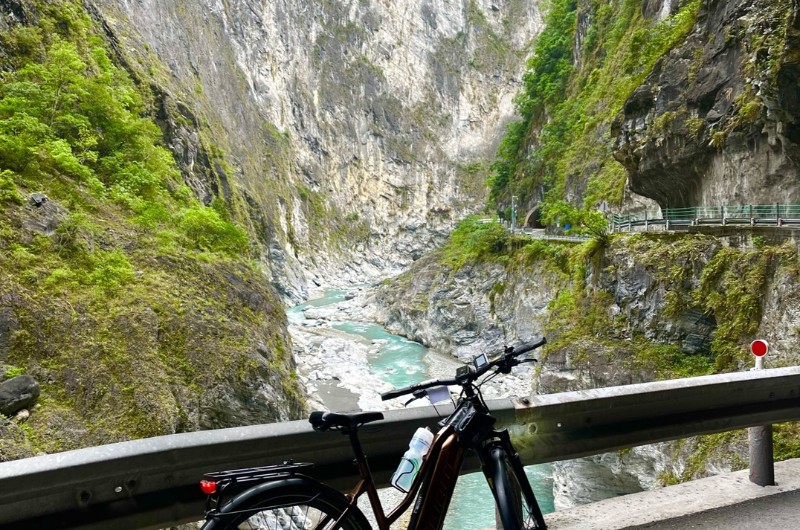
Rental cars: Renting a car in Taiwan is an option, especially for those who prefer the freedom of exploring the country at their own pace. While driving plays by similar rules to Western countries, remember that navigating Taiwanese traffic can be a challenge if it’s your first time, and parking in cities can be scarce. International driving permits are generally accepted, but it is essential to check with your car rental company for more specific requirements.
Domestic flights: Can save you time when traveling between distant locations in Taiwan. The main domestic air carriers are Mandarin Airlines and Uni Air, with services between Taipei, Kaohsiung, Hualien, Taitung, and some offshore islands.
Cycling: And of course, our absolute favorite way, on two wheels. As avid cyclists will attest, Taiwan is a gem to be discovered on two wheels. With its small rural backroads and dedicated cycle paths, the island presents an entirely different perspective from the seat of a bike. These routes often bring a sense of serenity away from the bustling city streets, revealing the more tranquil and scenic side of Taiwan.
Check out the video below and find our what our Taiwan bike tours are all about!
What to Do in Taiwan
Taiwan, often hailed as the 'Hawaii of Asia', is an outdoor enthusiast's paradise, boasting a myriad of exhilarating activities against the backdrop of its stunning natural landscapes. Here’s 5 things you absolutely must do for an incredible adventure:
- Hop on a bike and cycle through dramatic Taroko Gorge following the famous King of the Mountain route. Downhill for a thrilling wind-in-your-hair experience or uphill for those who enjoy a serious challenge. The route is spectacular in any direction!
- Take advantage of Taiwan's incredible bike infrastructure and ride the East Rift Valley, an enchanting lost world of lush green rice paddies, tropical fruit farms, hot springs, and tribal villages.
- Hike through Kenting National Park's coral formations and caves
- Glide on a stand-up paddleboard along the emerald green waters of Donghe River Gorge.
- Visit Taiwanese night markets, where you can immerse yourself in the rich culinary traditions inspired by the island's 16 indigenous tribes
Inspired? Read more on five hidden highlights of Taiwan.
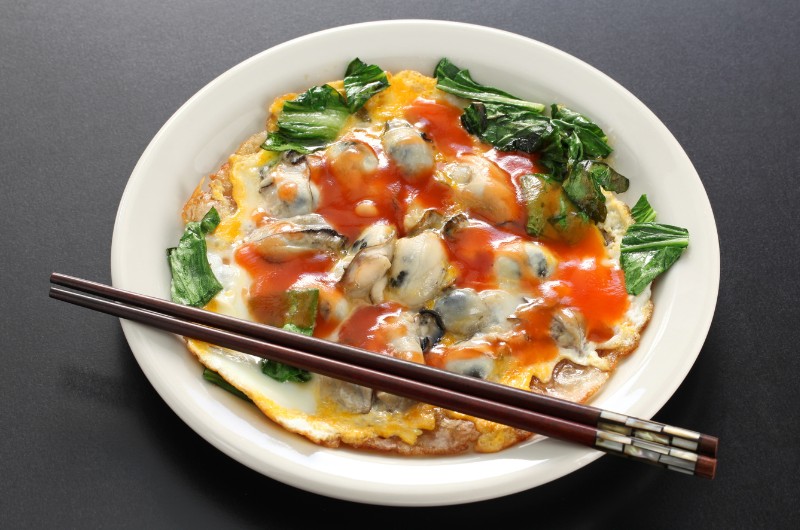
Taiwan Food and Drinks
Taiwan's cuisine is a combination of flavors influenced by various cultures, yet it maintains a unique identity that is both sophisticated and enchanting. Far from being one-note, Taiwanese food offers a diverse palette of tastes that range from sweet and savory to umami and tangy.
Top 5 Taiwanese Dishes You Have to Try:
Beef Noodle Soup (牛肉麵): Often considered the national dish, this comforting bowl features tender braised beef, hearty noodles, and a rich, savory broth seasoned with star anise and other spices. It's the perfect amalgamation of flavors that will have you craving seconds.
Braised Pork Rice (滷肉飯): This simple yet irresistible dish is a staple comfort food in Taiwan. It consists of finely chopped, soy-braised pork served over rice, often accompanied by pickled vegetables. Each mouthful is packed with flavor and leaves a memorable aftertaste.

Bubble Tea (珍珠奶茶): Taiwan's iconic beverage, bubble tea is a must-try for any visitor. It combines milk tea with chewy tapioca pearls, making it not just a drink but a delightful snack as well.
Gua Bao (割包): Often referred to as a Taiwanese hamburger, this delicious snack is a steamed bun stuffed with slices of braised pork, pickled mustard greens, cilantro, and powdered peanuts. The combinations of flavors and textures make it an absolute treat.
Oyster Omelette (蚵仔煎): A classic night market find, this dish features a savory omelette loaded with fresh oysters, drizzled with a sweet and slightly spicy sauce, and often accompanied by a starchy gravy that gives it a unique texture.
Is vegetarian food available in Taiwan?
Yes! Taiwan's culinary scene is remarkably accommodating for vegetarians and vegans. An abundance of restaurants and food stalls cater to these dietary preferences, serving a host of delightful and varied vegetarian dishes such as stir-fried vegetables, scallion pancakes, and fried stinky tofu.
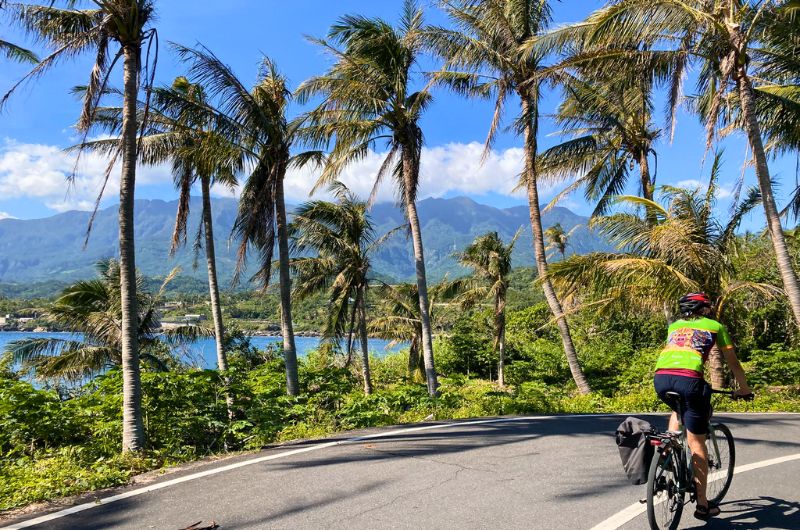
What to pack for Taiwan
You're on your way to Taiwan, and smart packing is key to a fantastic trip! Remember, Taiwan's subtropical climate means embracing lightweight, airy fabrics, especially during its warm summers.
However, if you're venturing into the higher altitudes or traveling during the cooler months, bring some warmer layers as evening temperatures can comfortably cool down.
For Men: In Taiwan's bustling cities and tourist areas, shorts and T-shirts are perfectly acceptable for men. Sleeveless shirts and tank tops are less common, so opt for a light, short-sleeved shirt to blend in while keeping cool. When visiting temples or attending formal events, be sure to cover up with pants and a T-shirt or casual button-up shirt.
For Women: Women in Taiwan's urban and tourist areas like Taipei and Kaohsiung wear a mixture of Western and Asian fashions. While skirts, dresses, and shorts are widespread, it's wise to lean towards modesty, especially when traveling in rural areas or visiting religious sites. Having a shawl or scarf on hand can be helpful for covering shoulders or arms when needed.
Religious and Cultural Sites: Taiwan is home to beautiful temples and rich cultural sites, and it's respectful to wear clothing that covers shoulders and knees when visiting. Carrying a light jacket or sweater will not only prepare you for a respectful visit but also for any temperature changes in air-conditioned environments or cooler evenings.

Electrical Sockets: Taiwan uses Type A and B electrical outlets (110V), which is similar to the USA and Cananda. Visitors from these countries are unlikely to need a travel adapter/converter. Visitors from countries with different outlets and voltages should pack a universal travel adapter so you can keep your devices charged throughout your journey.
Sun Protection: Given the strong sun, ensure you have sunscreen, sunglasses, and a wide-brimmed hat. This is crucial whether you’re sightseeing in the city or taking in the stunning landscapes of places like Taroko Gorge.
Insect Protection: Mosquito repellent and after-bite care will enhance your comfort when exploring Taiwan’s beautiful outdoor spaces and night markets.
Health and Safety: A small first aid kit with band-aids, antiseptic cream, and your prescribed medications will keep you prepared for minor health needs.
Finally, adapt your luggage contents to align with the experiences you anticipate in Taiwan. Whether you're hitting bustling night markets, hiking in serene forests, misty mountains, or vibrant cities, Taiwan is best enjoyed with a little thoughtful preparation!
If you're traveling with Grasshopper Adventures, rest assured, you're in great hands. We're committed to ensuring you have an unforgettable experience in Taiwan. To that end, we will provide you with a detailed, customized packing list tailored to your adventure.

Internet in Taiwan
Taiwan boasts a superb network of free Wi-Fi hotspots, in addition to hotels, cafes, and restaurants offering this service. To ensure constant connectivity, purchasing an affordable local SIM card on arrival is recommended, especially if traveling independently. You’ll enjoy ample 4G coverage across the country even in remote areas.
SIM cards can be bought upon arrival at Taiwan Taoyuan International Airport or conveniently at local stores like 7-Eleven or FamilyMart. Telecom companies such as Chunghwa Telecom, Taiwan Mobile, and Far EasTone offer a variety of prepaid data and call packages to suit your needs. Verification with your passport is required upon purchase.
Alternatively, check with your home cell phone provider about international roaming options before your trip, although this may often be a more costly option.
Overall, having access to the internet during your Taiwan adventure is easy and convenient, ensuring you can comfortably navigate your surroundings, plan your itinerary, and share your travel memories with friends and family back home!

Culture and Etiquette in Taiwan
When visiting Taiwan, understanding some of the local customs can enhance your travel experience and show respect for local traditions. Here are three lesser known "dos and don'ts" to consider:
DO'S
- Queue patiently: Taiwanese people value order and politeness. Whether you're waiting for a bus, buying tickets at an attraction, or ordering at a night market, you'll notice the locals standing patiently in line. Following this practice is a respectful gesture.
- Use both hands when giving or receiving: Be it business cards, gifts, or even money, always use both hands when giving or receiving items. This practice shows respect and is often followed in formal situations.
- Toasting etiquette: In Taiwan, during a meal at a restaurant or a formal gathering, you may participate in several toasts. Always ensure your glass is lower than that of an elder or senior as a sign of respect when clinking glasses.
DON'TS
- Avoid discussing politics: Especially revolving around China-Taiwan relations. This is a sensitive topic and is best spared from conversation to avoid potential discomfort or disagreement.
- Don’t pierce your food with chopsticks: Pointing your chopsticks vertically into a bowl of rice or other food is considered poor manners as it is reminiscent of funerary rites.
- Avoid whistling or singing at night: An old Taiwanese belief says that these actions can attract ghosts or spirits. While this may not be a widely held belief today, it's an interesting cultural tidbit to keep in mind if you find yourself out late.
Finding this interesting? Read more about 9 things you did not know about Taiwan.

Religion in Taiwan
Taiwan is characterized by religious diversity, with several religions co-existing harmoniously. The predominant religions are Buddhism, Taoism, and Confucianism. However, a small percentage of Christians, Muslims, and practitioners of other religions are also present.
Buddhism is widely practiced in Taiwan with Mahayana Buddhism being the most prevalent form. It is estimated that about one-third of the population identifies as Buddhist[1%5E]. Magnificent Buddhist temples like the Fo Guang Shan Monastery showcase the spiritual devotion and architectural prowess related to this religion.
Taoism is another significant religion in Taiwan. It focuses on the teachings of Laozi and advocates for a life in harmony with the "Tao" or "the way". Taoist temples can be found all over Taiwan, with ornate decorations, vibrant colors, and incense-filled atmospheres.
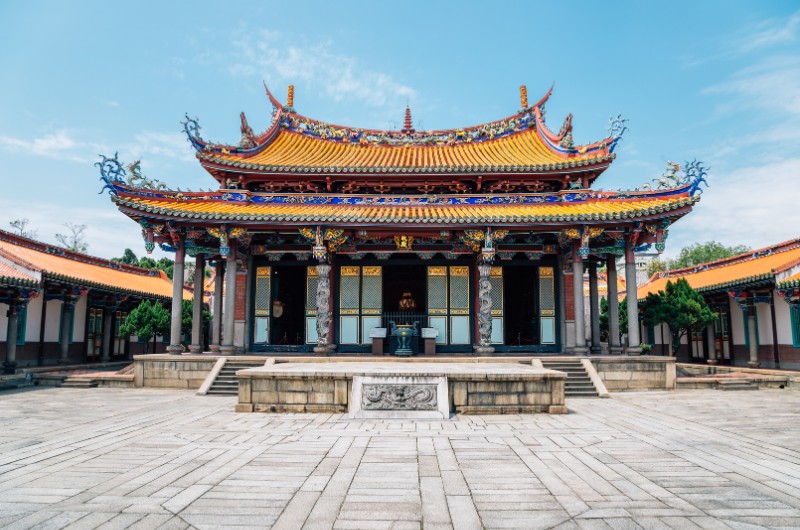
Although not strictly a religion, Confucianism plays a crucial role in shaping Taiwan’s ethical and philosophical landscape. Locals incorporate Confucian teachings into daily life, emphasizing respect for elders, education, and peace. The Confucius Temple in Taipei is a popular site showcasing Confucian architecture and culture.
Christianity and Islam also have a place in Taiwan's religious scene, though their followers are less in number. The country is inclusive, allowing various beliefs to flourish and co-exist. This is seen in the presence of mosques, churches, and other places of worship for different religions.
Taiwan's openness towards various religions reflects in the country's respect for freedom of belief, leading to a rich and diverse cultural and religious landscape. Regardless of your faith, when visiting religious sites, remember to be respectful of traditions and adherents.
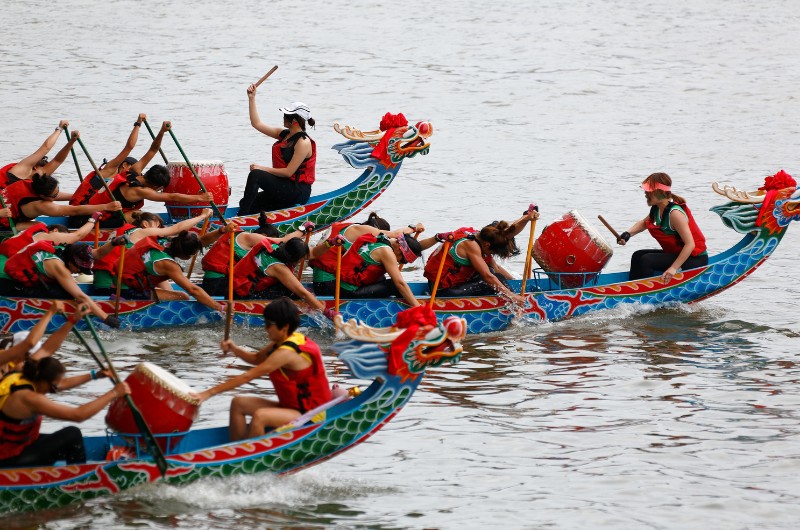
Festivals in Taiwan
Taiwan's cultural tapestry is vibrantly illustrated through its many festivals. Participating in or witnessing these festivals can be a highlight for any visitor, offering a unique glimpse into the island's heritage and traditions. Here's a brief look at a few notable cultural festivals:
- The Lunar New Year (typically falls between late January and early February): Known locally as Spring Festival, is the most celebrated festival in Taiwan. Marking the start of the lunar calendar, families gather for reunion dinners, homes are cleaned and decorated with red banners for good luck, and the island comes alive with fireworks and lion dances. The festival typically takes place in January or February, depending on the lunar cycle.
- Dragon Boat Festival (typically falls between late May and early June): Held on the fifth day of the fifth lunar month, the Dragon Boat Festival (Duanwu Festival) is famous for its dragon boat races. The festival commemorates the life and death of the ancient poet Qu Yuan and is also associated with warding off evil and disease. Zongzi, a traditional rice dumpling wrapped in bamboo leaves, is the typical food eaten during this festival.
- Mid-Autumn Festival (typically falls in September or October): Also known as Moon Festival, is one of the most charming and widely observed festivals in Taiwan. Celebrated on the 15th day of the eighth lunar month, it's a time when families gather to view the full moon, which represents reunion and completeness. Mooncakes, a round pastry filled with sweet or savory fillings, are shared and enjoyed during this festival.

- The Ghost Festival, or Zhongyuan Festival, falls on the seventh lunar month (typically August or September). It is believed that the gates of the afterlife open, and the deceased are free to visit the living. Taiwanese people offer food, incense, and paper money to appease these transient spirits and ensure their ancestors' well-being in the afterlife.
- Lantern Festival (typically falls in February): Celebrated on the 15th day of the first lunar month, the Lantern Festival traditionally marks the end of Lunar New Year festivities. The sky is adorned with thousands of flying lanterns, each carrying wishes and hopes for the coming year. Lantern riddles and lion dances are part of the fun, and in recent years, large-scale lantern displays have become a key feature of the festivities.
Each festival embodies a slice of Taiwan's rich cultural heritage integrated with seasonal and historical legacies, providing a feast for the senses and spirit. Visitors are encouraged to join the festivities but should always approach them with respect for the local customs and traditions.
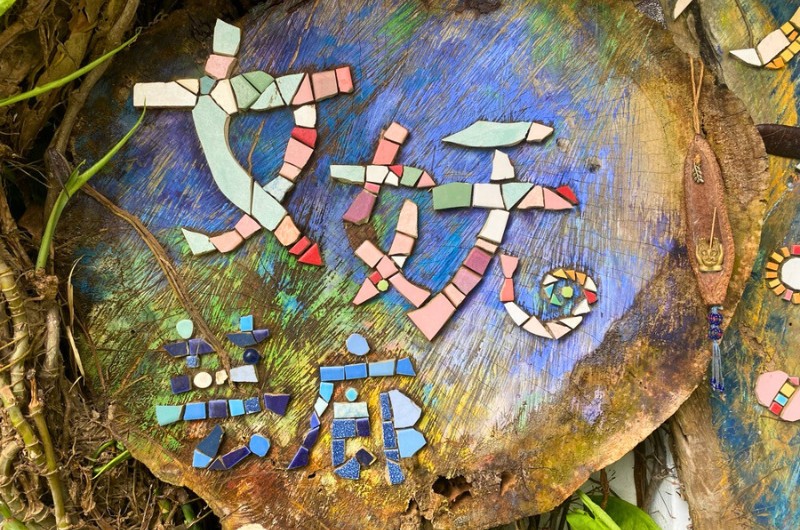
Languages in Taiwan
The official and most widely spoken language in Taiwan is Mandarin Chinese. The majority of the population speaks Mandarin, which is used in government, media, and education. However, several other languages and dialects are spoken across the island:
Taiwanese Hokkien: Also known as Taiwanese Minnan, it is a dialect of Hokkien Chinese. Many people in Taiwan, particularly in the southern and central parts, speak this language.
Hakka: Spoken mostly by Hakka people in the northwest, this Chinese dialect is preserved by a smaller percentage of the population.
Formosan languages: These are the aboriginal Austronesian languages native to Taiwan. Only a small number of indigenous Taiwanese people still speak these languages, with efforts being made to preserve their linguistic heritage.
English is becoming more common in the younger generation due to its emphasis in education. Many tourist attractions and public transportation systems also offer English signs and information. Nonetheless, it is beneficial to learn a few basic phrases in Mandarin to help bridge communication gaps and enhance cultural engagement and understanding while traveling in Taiwan.

Your Adventure Awaits at Handlebar Height
Congratulations, you've just earned your Taiwan Explorer badge! Your entry requirements are in check, you've distinguished your dumplings from mooncakes, and you've grasped the intricacies of cultural etiquette. Now, it's time to pack your essentials, hold onto your passport, and prepare to be enchanted by the splendors of Taiwan.
Let us handle the details while you voyage through Taiwan on two wheels. Whether you're traversing magnificent terrains, witnessing wildlife in lush national parks, or navigating through inviting villages, the island's diverse allure awaits.
Intrigued? Check out our Taiwan bike tours.


 By Lirene Cilliers Posted 19th Mar 2024
By Lirene Cilliers Posted 19th Mar 2024